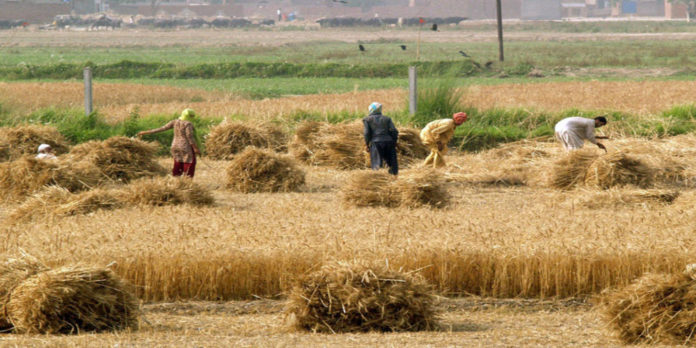ISLAMABAD: Agriculture is likely to face severe impacts from climate change, reducing the amount of food to be grown at a time when more is needed than ever before, a government official said.
Addressing the 25th session of the Near East Forestry and Range Commission (NEFRC), hosted virtually by Egypt, Federal Minister for National Food Security and Research Syed Fakhar Imam said the planet’s growing population and food consumption will require food production to increase 70 per cent by 2050.
The world population is expected to grow from 7 billion to 9 billion by 2050. With the consumption already at 1.5 times the planet’s replenishing capacity, the current food systems are unsustainable, he said, adding that at the same time, the production, storage, and transport of food causes greenhouse gas emissions, which contribute to climate change.
The minister said the food systems are responsible for up to 30 per cent of the global greenhouse gas emissions. The production of rice, which is a staple food for almost half of the world population, is responsible for around 11 per cent of all manmade methane emissions.
In addition, cutting down forests for new farmland and unsustainable farming practices are major sources of carbon dioxide (CO2) emissions.
Imam said that the agricultural sector of Pakistan is indispensable to the country’s economic growth, food security, employment generation and poverty alleviation.
It contributes 19 per cent to the GDP and provides employment to around 39 per cent of the labour force. More than 65 per cent to 70 per cent of the population depends on agriculture for its livelihood. Despite Covid-19, locust attack and extreme climatic events, Pakistan’s agriculture sector’s performance during 2020/21 was encouraging, as it grew 2.77 per cent against the target of 2.8 per cent. However, the population of the country will be 350 million by 2050 and food requirement will be 130 million tonnes. “This will be possible, if we wisely use land, water and other available resources,” he said.
Further, the minister said to counter such issues, under the directives of the prime minister, the government had already planted billion trees in Khyber-Pakhtunkhwa, while the National Scale Ten Billion Afforestation project is under way. These initiatives will increase the forest cover area, desertification control, climate mitigation, biodiversity conservation and ecosystem improvement.
The 10 billion afforestation programme is further linked to promote apiculture in the country and production of quality honey with additional plantation of bee supporting flora.
Imam said that healthy forest ecosystems are essential for sustainable agriculture production. The following recommendations have been given, strong linkages are required among Near East and North Africa (NENA) for knowledge sharing, technology transfer and human resource development in the areas of sustainable agriculture production, while restoration and improvement of forest and rangeland ecosystems.
Joint programmes/ventures for public awareness and promotion of more efficient climate resilient agriculture production systems.
A comprehensive report to document the success stories and best practices in the NENA Region.
